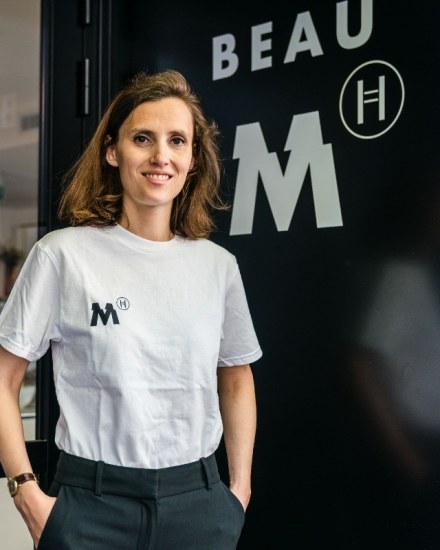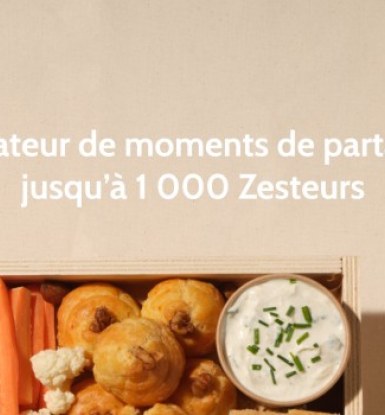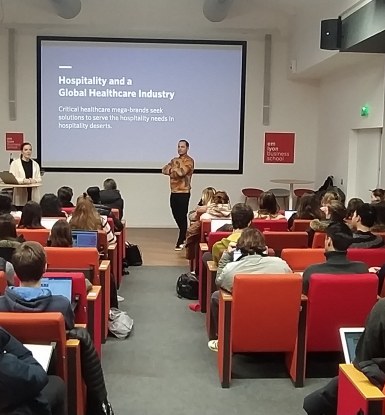Following a grounding in the areas of catering, wine and beverages, Pauline Mey saw an opportunity to create a niche in the hospitality market by setting up eco-responsible, technologically advanced hostels for clients from around the world seeking 3–4-star quality of service at a price that’s right. Duly equipped with the emlyon business school and Institut Lyfe (formerly Institut Paul Bocuse) MSc in International Hospitality Management, she successfully navigated a business launch that could have been blighted by the COVID-19 pandemic to make a real name for herself and her business venture “Beau M Hostel”.
What brought you to your choice of this MSc in International Hospitality Management program?
“My background both professionally and education-wise was firmly rooted in catering. I’d seen it all, from service for luxurious banquets and training Chinese students during studies in Shanghai through to managing partnerships and working in catering management. I had also begun to discover the legal and investment sides to the industry. Then the idea began to grow inside me of veering towards hospitality, hence my choice of school and program at emlyon. In 2015 I joined what was then the second cohort of the MSc in International Hospitality Management.”
What did you derive from your time on the program?
“The first year of the program was more of a pilot one, so I and my classmates found ourselves in a more structured environment as the second cohort. We were encouraged to develop an instinct for constantly monitoring the market, studying what potential competitors were or would be doing, how to make a hotel or (in my case later) hostel more dynamic, underpinned with knowledge of the legal and commercial aspects to running such a business. There was a degree of continuity with my previous studies at the Institut Lyfe (formerly Institut Paul Bocuse), but the more business-oriented profile of emlyon, the training offered and the people with whom I was studying meant that I became more business-savvy, with an improved grasp of the commercial side of things and key skills such as project management.”
How did the idea of setting up your own business come about?
“My time at emlyon opened my eyes to the technical, economic, and commercial aspects of the hospitality industry, plus the constant need to keep a close eye on the state of the market and emerging trends. It was at that point that I sensed a gap in the hostel market, that of top-quality but nevertheless affordable accommodation. I learned of Accor starting to open such premises and of a few cases in France (in Lille and Chamonix) where these kinds of ventures were starting up, but they were few and far between. I got a gut feeling that a market was beginning to emerge and that an opportunity (or host of opportunities) was there to be seized.”

Describe the beginnings of Beau M Hostel and the early challenges faced.
“The project began in earnest about five years ago, with the particular challenge of works happening in the midst of the global pandemic. We were eventually open for business in March 2023. Whilst still in the planning stages, we sought the independent view of a highly renowned consulting firm as we needed reassurance from an expert, objective perspective on the wisdom of our venture. Once our pitch had received their thumbs-up it was all systems go and now we found ourselves with the daily challenge of keeping our customers happy, managing our E-reputation (which in the online world is a potential minefield), and keeping a constant eye on the competition. When you are offering a high-class service at affordable prices, there is little margin for error.”
What defines the service your hostels have to offer?
“Firm emphasis is placed upon eco-responsibility and making technology work in the interest of the customer. For example, we use smart digital technology to smooth the checking-in and out processes as far as possible. We also take great pride in personalizing the service we offer on the premises. Our staff are far more than receptionists. They are there to accompany our guests from A to Z, including making suggestions of tourist attractions, local restaurants etc. 70% of our customers are from abroad, so we ensure our staff are on hand to offer a quality of service that includes local knowledge and genuine support whenever required.
What lessons have you learned from this venture that you would pass on to others?
“On a business level, always maintain a long-term vision of what you are trying to achieve and keep a constant eye on the market, trends, and what the competition is up to. To manage this, you have got to trust in your own vision and in your own abilities. On a more personal level (and I speak from experience), remember that failing on the odd occasion can be constructive and instructive. Finally, as a woman and an entrepreneur, do not feel for one second that you have to choose between the two. With the right business plan and the required will to succeed, it should always be possible to be both.”


